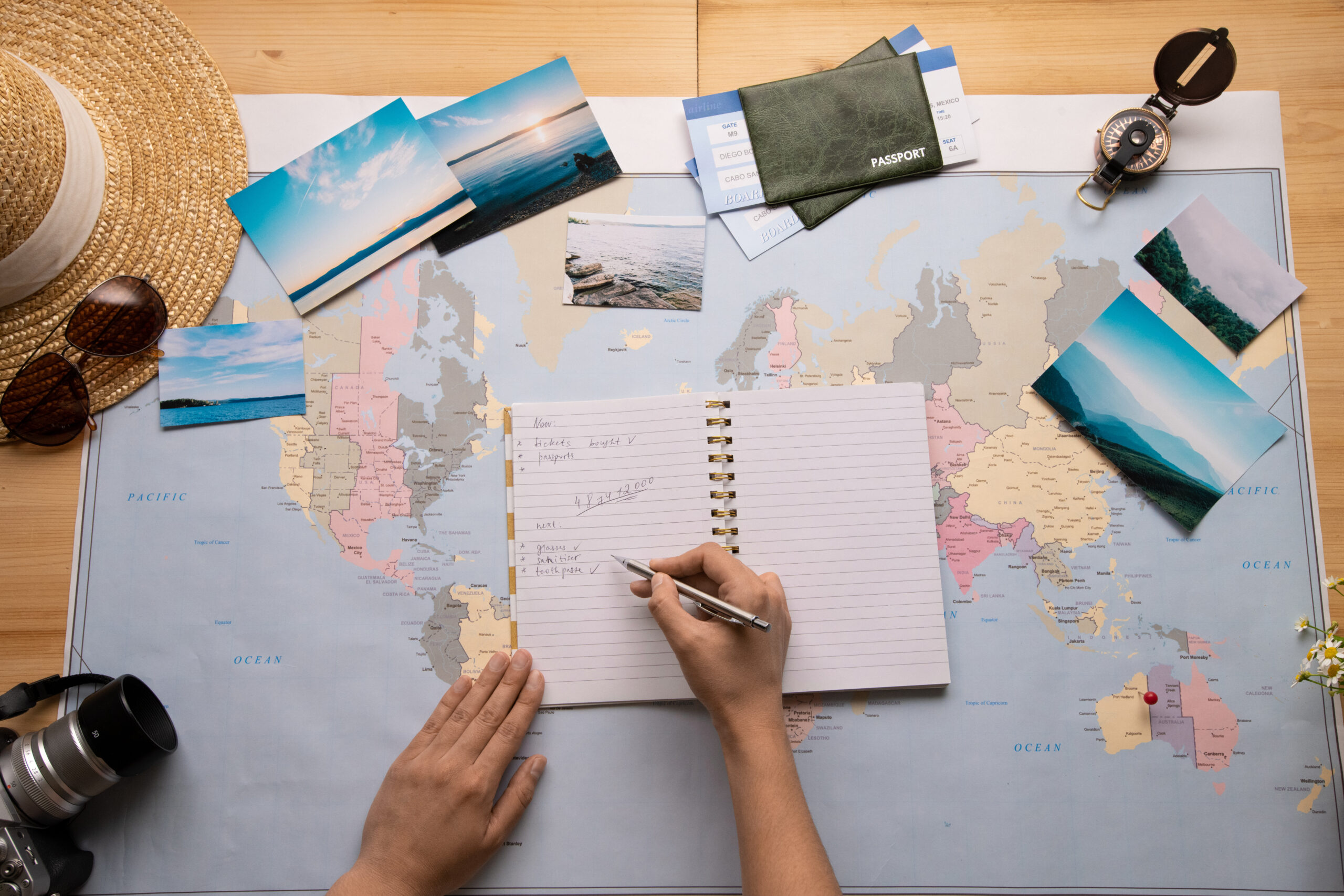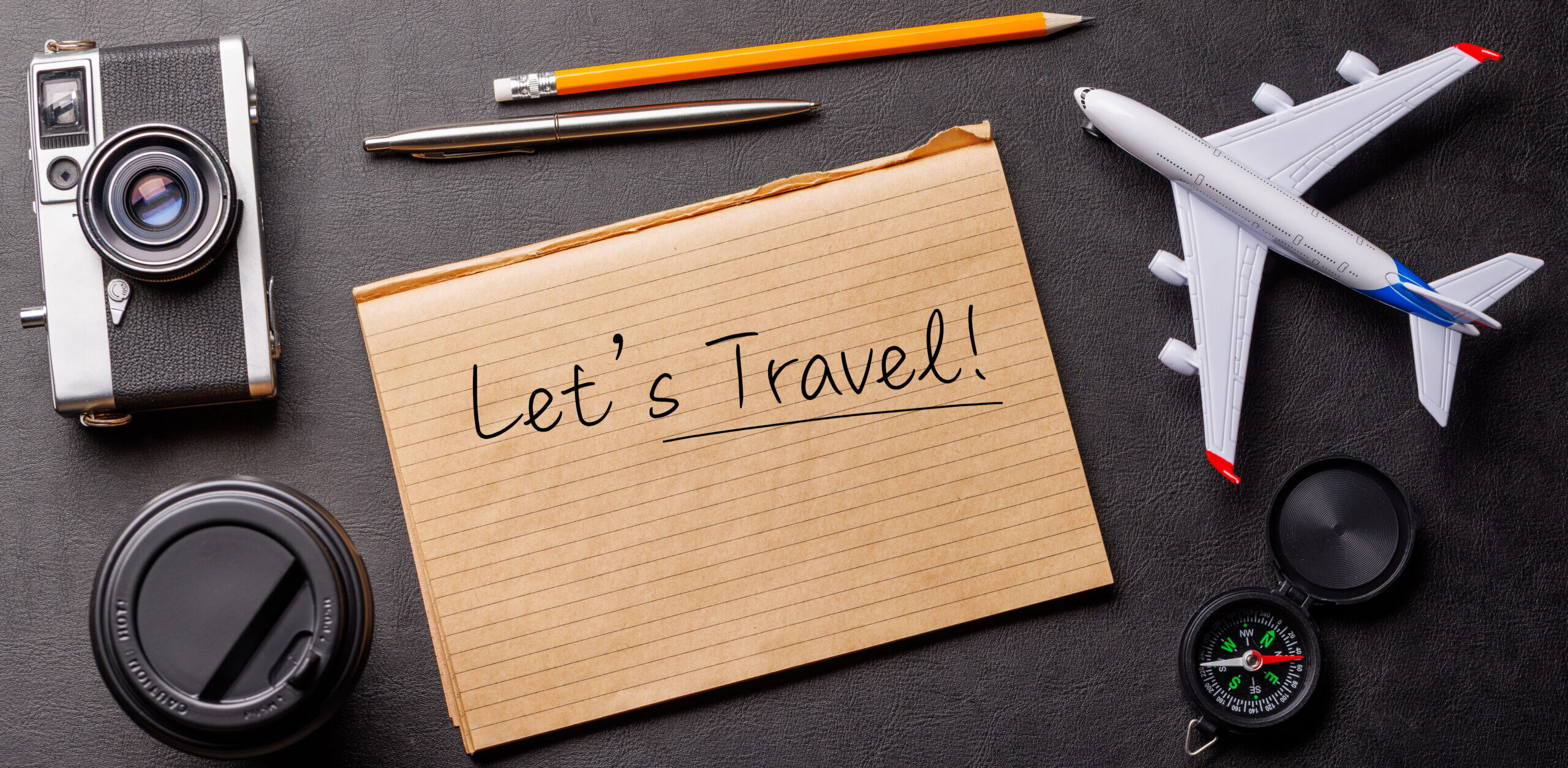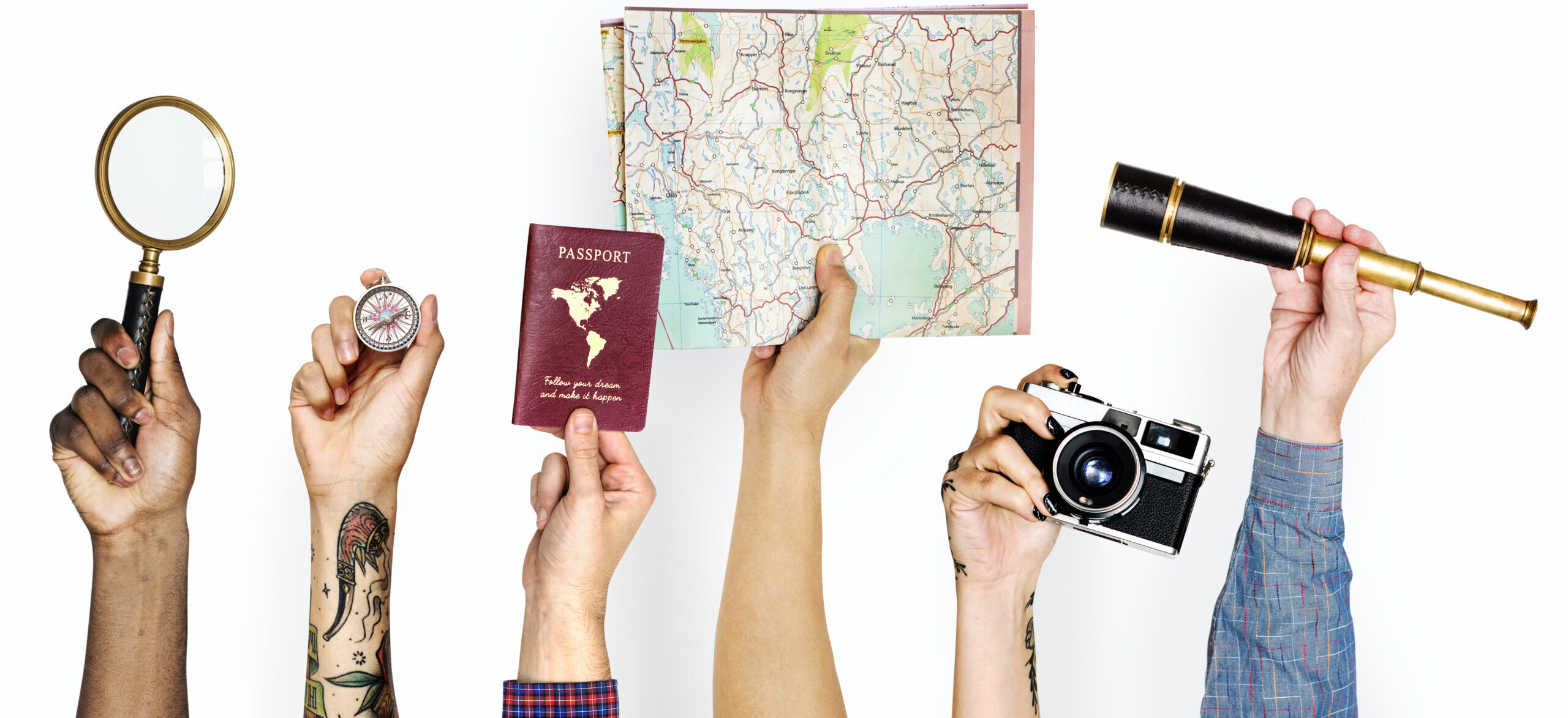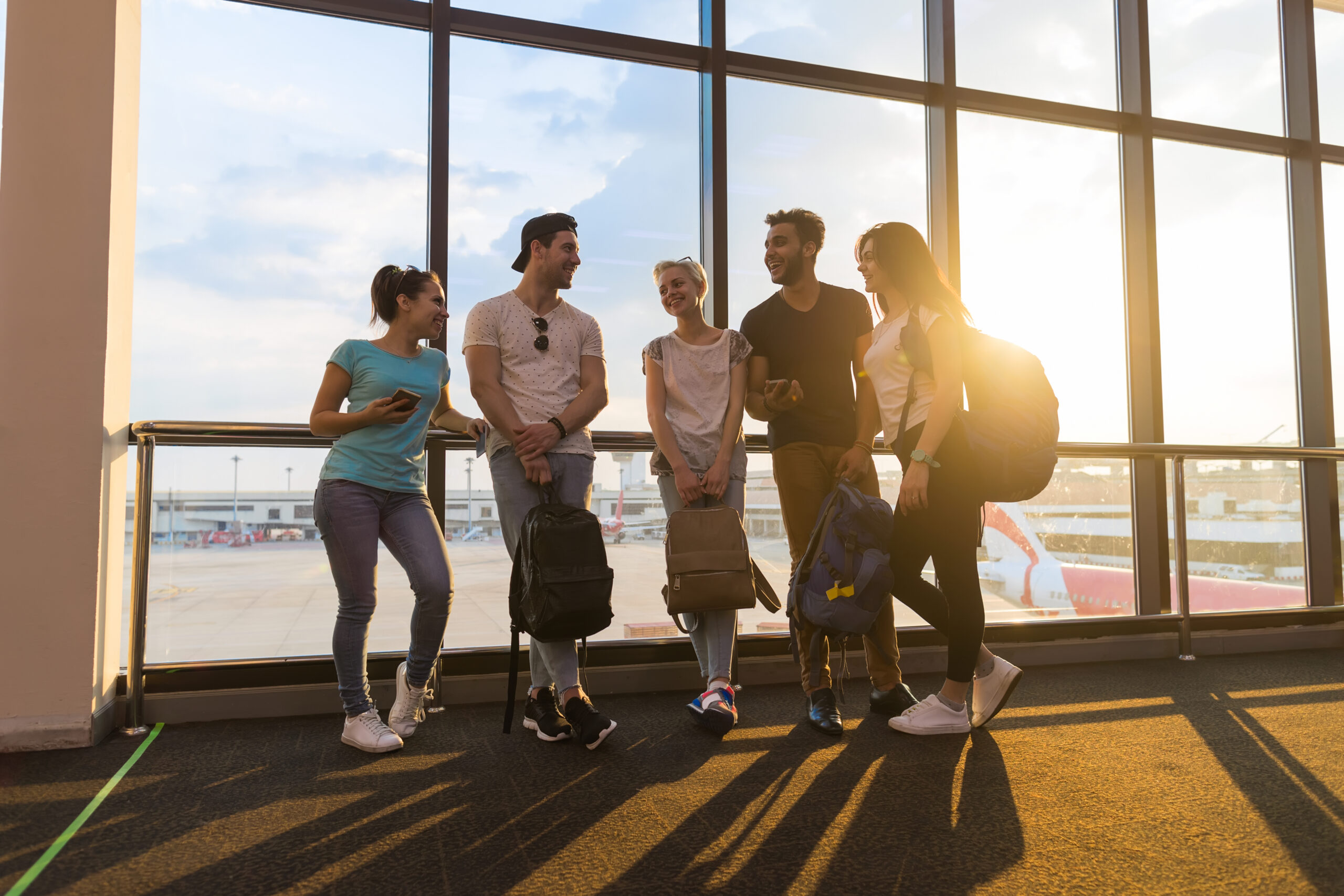Get useful travel tips, news & advice
- by WandersWise
- 14 de April de 2025
In an age of information overload, finding reliable, relevant travel intelligence can feel like searching for a specific grain of sand on an endless beach. Yet curating quality travel advice isn’t just about convenience—it can transform your journeys, save substantial money, prevent frustrating mistakes, and open doors to experiences you might otherwise miss. Over years of professional travel writing and personal globe-trotting, I’ve developed strategies for filtering noise from signal in the travel information ecosystem. Here’s how to build your own personalized system for gathering travel intelligence that actually enhances your adventures.
The Problem with Travel Information Abundance
My first solo international trip occurred in the pre-smartphone era, when guidebooks reigned supreme and word-of-mouth recommendations were travel currency. Today’s landscape couldn’t be more different—we’re drowning in travel content, from sponsored Instagram posts and algorithm-driven TikTok recommendations to endless blogs, vlogs, podcasts, and subscription newsletters.
This abundance creates paradoxical challenges. Despite unprecedented access to information, finding trustworthy, up-to-date advice tailored to your specific needs has never been more difficult. During a recent trip to Portugal, I watched fellow travelers at a Lisbon viewpoint frantically checking five different apps to determine if they were visiting at the “optimal” time, comparing conflicting advice while missing the actual sunset unfolding before them.
“The curse of the modern traveler is spending more time researching experiences than having them,” observed Maria, a seasoned tour guide I met there. “People arrive more informed but sometimes less prepared for genuine discovery.”

Curating Your Travel Information Diet
The secret to useful travel intelligence isn’t accessing more sources—it’s curating fewer, better ones. This deliberate approach requires initial investment but pays dividends through more meaningful, less stressful travel experiences.
My system begins with a personal “trust network” of information sources selected through careful evaluation. For each potential source, I consider several factors: transparency about sponsorships and financial relationships, depth of firsthand experience, demonstrated cultural sensitivity, and accuracy of practical details.
This network includes a handful of travel journalists whose judgment I’ve come to trust, several destination-specific blogs run by long-term residents rather than brief visitors, and certain travel communities where moderators actively combat misinformation. I complement these with specialized resources for distinct travel needs—separate sources for budget flights, luxury accommodations, adventure activities, and cultural immersion.
The key is quality over quantity. “Most travelers make the mistake of gathering endless information from sources they don’t properly vet,” explains Carmen Rodriguez, a digital nomad who’s worked from 40+ countries. “I’d rather have five deeply trusted sources than fifty casual ones.”

Beyond the Algorithm: Finding Authentic Expertise
Social media platforms have revolutionized travel information sharing, but their business models don’t prioritize accuracy or relevance. Algorithms reward engagement metrics rather than expertise, often amplifying visually stunning but practically useless content.
To counter this, I’ve learned to seek authority beyond popularity. When researching Japan’s remote Tohoku region, I discovered a modest blog written by an American expat who had spent 15 years living there. Her detailed transit instructions and cultural insights proved invaluable, despite her small following compared to viral Japan travel accounts with millions of views but superficial knowledge.
Similarly, when planning a hiking trip through Peru’s Sacred Valley, I bypassed glossy travel magazines in favor of a specialized hiking forum where local guides and experienced trekkers shared current trail conditions, permit requirements, and authentic community homestay recommendations. This information wasn’t packaged in beautiful infographics, but its accuracy saved me from several potential mishaps.
Destination-specific online communities often harbor these hidden experts. On platforms like Reddit, Discord, or Facebook Groups dedicated to particular locations, you’ll frequently find long-term expats, tourism professionals, and passionate locals willing to share insider knowledge that rarely surfaces in commercial travel content.
The Power of Human Curation
While algorithms continue to dominate information discovery, human curation has made a significant comeback through newsletters, curated guides, and community-driven platforms.
Travel newsletters have emerged as powerful filters for quality information, with expert writers sifting through overwhelming amounts of content to deliver concentrated value. Subscriptions to a few carefully selected newsletters—some destination-specific, others thematic around interests like food travel or sustainable tourism—can replace hours of unfocused browsing.
“We’re seeing a renaissance of expert curation,” notes travel technology analyst Sofia Mendes. “People are recognizing that an experienced human filter with clear values and transparent criteria often delivers better results than even the most sophisticated algorithm.”
This trend extends to community-driven platforms where collective expertise emerges through structured contribution systems. Sites like Atlas Obscura combine professional editing with user-generated content validated through community review, creating information ecosystems that balance accessibility with reliability.
Several times, these curated resources have led me to extraordinary experiences I would have missed otherwise—a temporary art installation in a Budapest thermal bath discovered through a niche cultural newsletter; a family-run cooking class in Vietnam found via a food-focused travel community; a perfect hidden cove in Greece shared through a local-verified mapping platform.

Timing Is Everything: The Freshness Factor
Even the most reliable travel information becomes dangerous when outdated. In rapidly changing destinations, recommendations from just a year ago might lead to closed restaurants, obsolete transportation options, or neighborhoods that have dramatically transformed.
This reality has pushed me to develop a “freshness framework” for evaluating information based on how quickly different aspects of travel evolve. For instance, visa requirements, transportation systems, and safety situations can change overnight, requiring sources updated in real-time. Restaurant recommendations might have a “shelf life” of 1-2 years, while cultural insights and historical information remain relevant much longer.
During the post-pandemic travel resurgence, this freshness factor became particularly critical. Planning a trip to Bali in 2023, I nearly relied on extensively detailed blog posts from 2019, before realizing they predated significant changes in everything from entry requirements to which beaches remained unspoiled. Instead, I prioritized real-time sources—a local journalist’s weekly newsletter, recent comments in destination forums, and conversations with recently returned travelers.
“The half-life of travel information varies dramatically by destination and subject matter,” explains travel researcher Dr. James Chen. “In stable, slowly-evolving destinations like rural France, recommendations might remain valid for years. In rapidly developing areas like parts of Southeast Asia or certain technology-related advice, information can become misleading within months.”
Verification Through Triangulation
No single source—regardless of expertise or reputation—deserves blind trust. My most reliable travel intelligence has come through deliberate triangulation: confirming key information across multiple independent sources before making significant decisions.
This approach saved me from potential disaster in Morocco, where three seemingly authoritative blogs provided contradictory information about desert tour operators. By cross-referencing with local tourism board registrations, recent traveler reviews across multiple platforms, and direct inquiries to hotels in the region, I identified which source was outdated and potentially hazardous.
Effective triangulation requires diversity in your information sources—mixing commercial publications with individual content creators, official tourism resources with local community insights, and traditional media with user-generated content. When the same recommendation or warning appears across this spectrum, its reliability increases substantially.
The Human Network: Building Real Relationships
Despite technological advances in travel information, personal connections remain irreplaceable. I’ve systematically built relationships with fellow travelers, travel professionals, and locals worldwide—not just for immediate advice, but as an ongoing knowledge exchange network.
This approach begins with reciprocity. Rather than just extracting information from locals or experts, I actively contribute useful insights from my own experiences and maintain genuine connections beyond transactional information requests.
During a trip to Colombia, a casual conversation with a boutique hotel owner in Medellín evolved into an ongoing relationship. Months later, when planning a return visit, his personalized recommendations—based on his understanding of my interests from our previous conversations—unlocked experiences no published guide could have revealed: a private viewing at an artist’s studio, an invitation to a neighborhood cooking gathering, and the perfect timing to visit a popular natural attraction when cruise ship crowds were absent.
Similarly, I participate in several travel communities where relationships transcend individual trips. Members alert each other to exceptional flight deals, unexpected travel disruptions, or emerging destinations before this information reaches mainstream channels. This collective intelligence operates through trust and reciprocity rather than algorithms or commercial incentives.

Practical Systems for Information Management
Even the best travel intelligence becomes useless without effective systems to capture, organize, and retrieve it when needed. After experimenting with countless approaches, I’ve settled on a hybrid system combining digital tools with analog backups.
At its core is a personal digital “travel wiki” organized by destination, with standardized categories for essential information: transportation, accommodation, food, activities, cultural context, and practical logistics. Each entry includes source attribution and date, allowing me to quickly assess information freshness during future trip planning.
For active trip research, I use a project management approach with dedicated boards for each destination, moving information from “potential” to “verified” columns as I confirm details through multiple sources. Critical documents—visa requirements, booking confirmations, health advisories—get backed up both digitally and physically, with key details accessible offline.
These systems serve not just planning but reflection—after each journey, I document which information sources proved most reliable, which recommendations delivered as promised, and which aspects of my research would benefit from different approaches next time.
Developing Critical Travel Literacy
Beyond specific sources and systems, developing “travel information literacy” has transformed how I approach journey planning. This means understanding the business models, incentives, and limitations shaping different information sources.
For example, recognizing that influencer content often prioritizes aesthetics over practicality helps me contextualize their recommendations. Understanding that guidebooks require long production cycles explains why their practical information often lags behind reality. Knowing that tourism board materials naturally emphasize positive aspects while minimizing challenges sets appropriate expectations for their usefulness.
This literacy extends to cultural awareness—recognizing how Western perspectives dominate English-language travel content and actively seeking counter-narratives from local voices. When researching a trip to Rwanda, I intentionally sought content created by Rwandan writers and tour operators, whose emphasis on national transformation and community tourism contrasted sharply with the dominant gorilla-trekking and genocide-memorial narratives in Western coverage.
“True travel wisdom comes from understanding not just what information is available, but why it exists in its particular form,” notes cultural tourism educator Elena Mikhailova. “Ask who created this content, for whom, and toward what end—and suddenly you’ll see travel advice very differently.”
The Return to Travel Professionals
Perhaps ironically, the overwhelming volume of online travel information has sparked renewed appreciation for professional travel advisors and specialists. The modern incarnation of travel agents—now more accurately described as travel designers or consultants—offer expertly filtered, personalized information beyond what even the most dedicated individual researcher can access.
“People initially thought the internet would make travel agents obsolete, but we’re seeing the opposite,” explains luxury travel consultant Marcus Williams. “Clients come to us overwhelmed by contradictory information and decision fatigue. They want curation by someone who knows both the destination and their personal preferences.”
While not appropriate for every trip or traveler, specialists can provide extraordinary value for complex itineraries, destinations with infrastructure challenges, or experiences requiring insider connections. Their compensation models have evolved from simple booking commissions to consultation fees reflecting their expertise and time—a model that better aligns incentives with traveler outcomes.
For my own journey to Bhutan—a destination with complex permit requirements, limited accommodation options, and mandatory guide regulations—engaging a specialist with deep in-country relationships proved invaluable. Her knowledge not only simplified logistical challenges but provided access to family homestays and cultural experiences rarely mentioned in published sources.
Final Reflections
In a quiet tea house in Kyoto, I once overheard a conversation between two travelers comparing their information sources—one proudly described spending months researching every aspect of their Japan journey through dozens of blogs and videos, while the other sheepishly admitted following recommendations from just one exceptionally well-researched guidebook and a local friend.
Later that evening, I noticed the first traveler frantically checking multiple apps for dinner recommendations while appearing increasingly stressed by contradictory information. The second sat contentedly at a tiny counter restaurant they had discovered through their limited but trusted sources, engaging with the chef in broken Japanese rather than with their phone.
This contrast perfectly illustrated that successful travel intelligence isn’t about maximum information, but optimal information—quality over quantity, depth over breadth, and trusted curation over algorithmic aggregation. In developing personal systems to identify, verify, and apply travel knowledge, we regain the capacity for genuine discovery while avoiding the pitfalls of either uninformed wandering or over-programmed tourism.
The most valuable travel information isn’t simply accurate—it’s relevant to your specific travel philosophy, practical for your unique constraints, and presented in ways that enhance rather than detract from the fundamental joy of exploration. By thoughtfully curating our travel information diet, we create space for the serendipity and spontaneity that transform ordinary journeys into extraordinary adventures.
Practical Tips for Travel Intelligence:
- Create a “trust core” of 5-7 information sources you’ve personally verified through experience, covering different aspects of travel (logistics, cultural insights, food, accommodations).
- Implement a “three-source rule” for critical travel decisions—verify important information through at least three independent channels before finalizing plans.
- Develop relationship-based information networks by contributing to travel communities, maintaining connections with locals you meet, and participating in knowledge exchange rather than just extraction.
- Establish clear systems for capturing and organizing travel intelligence, with standardized categories and attribution of sources with dates.
- Practice source criticism by understanding the business models, incentives, and potential biases influencing different travel information providers.
- Seek local voices actively and prioritize content created by residents or long-term expats over brief visitors when researching destinations.
- Consider travel specialists for complex destinations or when your time for research is limited—their expertise often delivers value exceeding their consultation fees.
- Create information boundaries to prevent research overwhelm—set specific time limits for planning and restrict yourself to your pre-vetted sources rather than endless browsing.
- Balance digital and human sources by complementing online research with conversations with recent travelers, expatriate communities, and local contacts.
- Document information reliability after trips by noting which sources provided accurate guidance and which fell short, continuously refining your trust network.









#Comments (63)
Harry4202
https://shorturl.fm/VkQt4
Robin3040
https://shorturl.fm/4OjAV
Wayne4676
https://shorturl.fm/kk0bm
Ian2837
https://shorturl.fm/ZFTAS
Piper728
https://shorturl.fm/3cU6W
Anabel4084
https://shorturl.fm/4fDt2
Earl2884
https://shorturl.fm/de06Z
Conner773
https://shorturl.fm/ds7UN
Lillian3773
https://shorturl.fm/tdV1W
Christina2264
https://shorturl.fm/IZnQu
Felix3367
https://shorturl.fm/dBE73
Lauren2645
https://shorturl.fm/t7s9Q
Craig4218
https://shorturl.fm/rEJVO
Darryl4436
https://shorturl.fm/fsQYd
Serena4171
https://shorturl.fm/cZ3Xl
Piper1763
https://shorturl.fm/kB184
Virginia3063
https://shorturl.fm/VQLm5
Finn2010
https://shorturl.fm/JRNo1
Brenda1554
https://shorturl.fm/XmylH
Regina4432
https://shorturl.fm/QpDlW
Derek467
https://shorturl.fm/I1tR7
Liam1612
https://shorturl.fm/8Tfzk
Claudia3748
https://shorturl.fm/6ESaY
Jill3329
https://shorturl.fm/ZB1hA
Alissa4274
https://shorturl.fm/4RugF
Lori629
https://shorturl.fm/VsCr8
Ella2296
https://shorturl.fm/3VZ8g
Harrison1082
https://shorturl.fm/1ZgKB
Cornelius1102
https://shorturl.fm/9jQ5m
Darius351
https://shorturl.fm/KguO3
Donovan3869
https://shorturl.fm/xV2xH
Hayden2524
https://shorturl.fm/nwk4A
Keegan3867
https://shorturl.fm/zHCLi
Lynn916
https://shorturl.fm/vi2pg
Savannah231
https://shorturl.fm/BTUV6
Maria839
https://shorturl.fm/JLJqy
Lindsay1613
https://shorturl.fm/9SSOO
Kendra1393
https://shorturl.fm/cscEl
Melanie3751
https://shorturl.fm/b1vQY
Eli2176
https://shorturl.fm/59CcP
Marian2284
https://shorturl.fm/A7d6t
Tyler3519
https://shorturl.fm/RoYAw
Norman4971
https://shorturl.fm/VQQuy
Leonel2258
https://shorturl.fm/MWUFS
William2670
https://shorturl.fm/e0Pii
Hayden1491
https://shorturl.fm/md7Yr
Sebastian2168
https://shorturl.fm/QLhPn
Lacey1745
https://shorturl.fm/LWoaD
Alison3078
https://shorturl.fm/SZrFe
Jake3216
https://shorturl.fm/Jb1bc
Fiona497
https://shorturl.fm/jd4go
Bentley4272
https://shorturl.fm/W9RM8
Addison672
https://shorturl.fm/Nb1Jo
Doug326
https://shorturl.fm/PcJg3
Dante3401
https://shorturl.fm/4zl0E
Ryder2311
https://shorturl.fm/KkWcg
Kelly415
https://shorturl.fm/fEaNq
Jessie2467
https://shorturl.fm/MQvo2
Jada1821
https://shorturl.fm/uwKQa
Camden2841
https://shorturl.fm/kJDC5
* * * $3,222 deposit available! Confirm your transaction here: https://somaarttattoo.ru/index.php?jnoyrq * * * hs=06fbd3ec38f2b3d1c244e89231f7626c* ххх*
nvfipe
playcitycasino
PlayCityCasino isn’t too shabby. The site loads quickly, and they seem to update their games pretty regularly. Customer support was helpful when I had a question about a bonus. Check them out at playcitycasino.
8gbet1
8gbet1’s where it’s at! Site’s easy to get around on. I would invite to try 8gbet1! Check it out